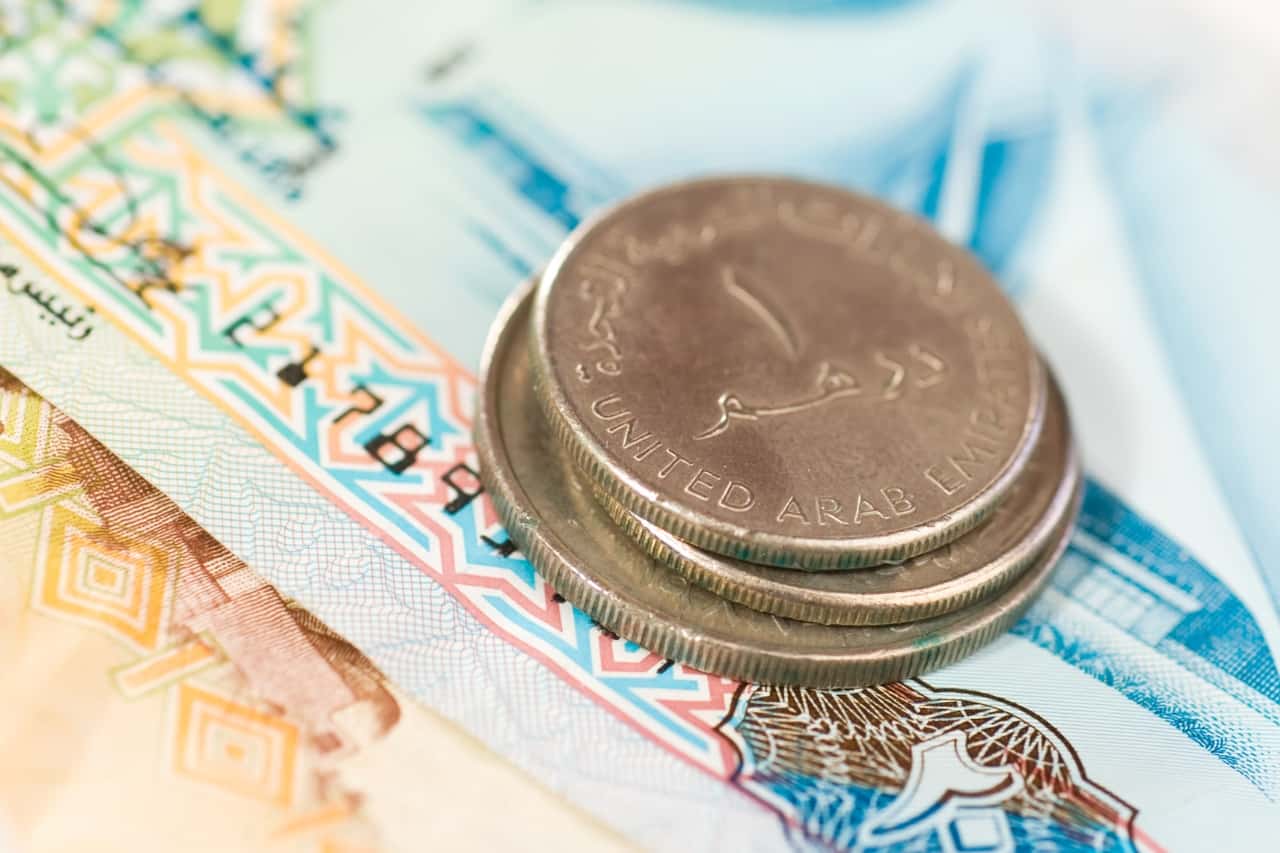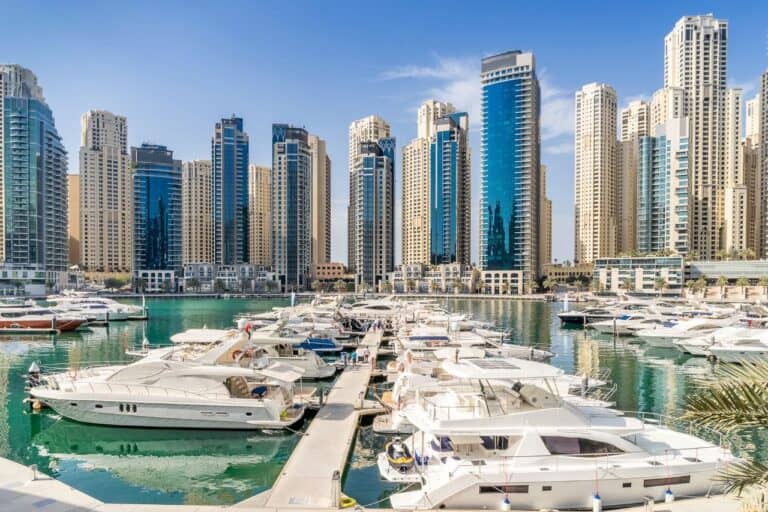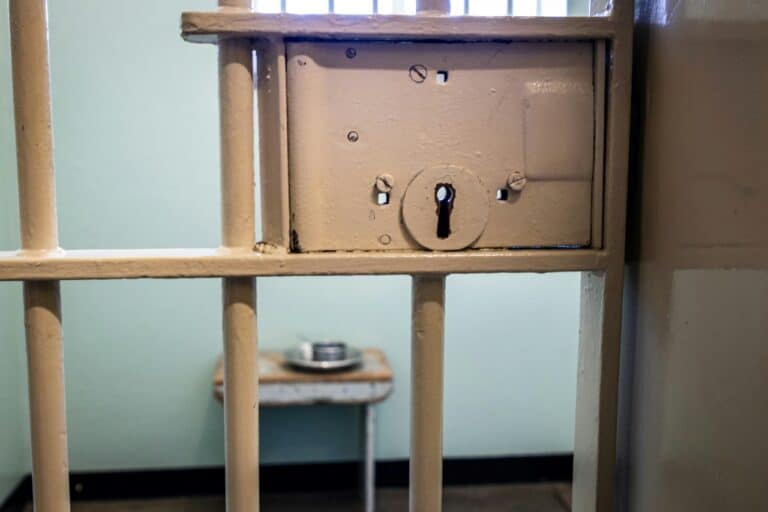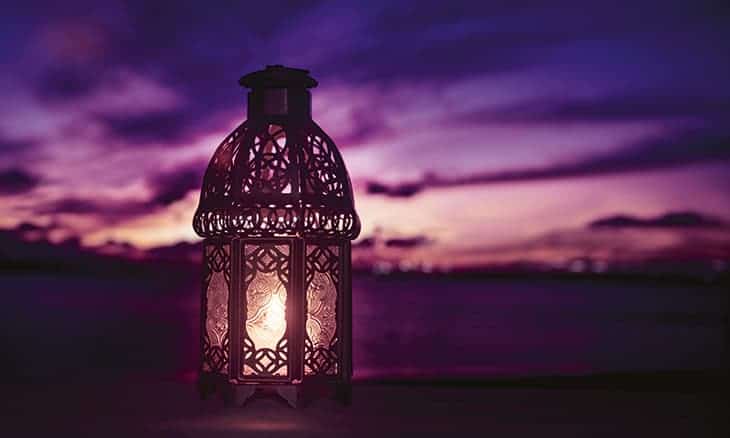What currency is used in Dubai? Exchange rates, banks & more
This comprehensive guide to the currency used in Dubai will provides all the information you need before your trip or move to Dubai! Plus exchange rates, international transfers and banking regulations.
Learn where to find the best deals on foreign currencies from someone who’s frequently exchanged money in Dubai over the years.
Dubai is a major financial hub in the Middle East, and one of the most important cities for business, finance, and commerce. It has a good reputation in the region. Scams, card fraud and crimes are low as long as you stick to the main currency exchanges.
Don’t have time to read? The best solution for exchanging currency:
Save money on fees and exchange rates 💵
What currency is used in Dubai?
The United Arab Emirates Dirham (AED for short) is the official currency in Dubai, and it is often denoted with the abbreviation ‘AED’ or the symbol ‘د.إ’.
It has been used in Dubai since 1973, when it replaced the Qatar and Dubai Riyal.
Each Dirham is made up of 100 fils but since 1 Dhiram isn’t a large amount of money (roughly 20p in UK or just under $0.30 in the US), it isn’t that often you’ll use fils. When you do, typically only 50 fil coins and 25 fil coins are used for change.
Nearly everywhere accepts cards, even small businesses and little shops. So if you’re planning to use your card more than cash, Dubai is very easy for paying with card. You’ll also find many exchange places if you prefer cash.
Cash notes and money denominations in Dubai
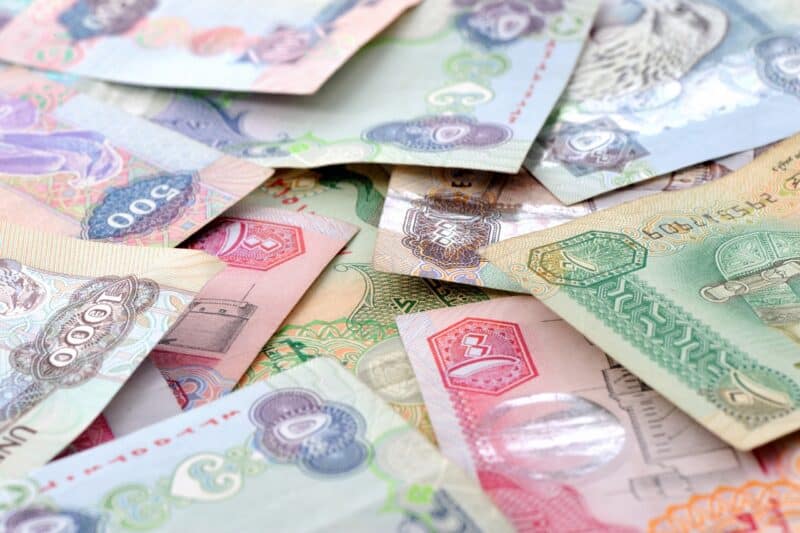
Cash notes in Dubai are widely accepted and can be found in denominations of 5, 10, 20, 50, 100, 200, 500 and 1000 AED. Though it is rarer to see 1000 AED notes.
Larger notes, including 500 AED notes can be difficult to use in smaller shops and taxis as they’ll often ask you for a smaller bill.
Coins are also available in denominations of 1 dirham plus 1, 5, 10, 25 and 50 fils.
Frequently you will find that stores will have pricing such as 9.95 AED however it’s rare for them to give you the smaller fils as change.
This is most common in supermarkets in Dubai, so you can be better off paying by card since over time the 0.1 and 0.05 fills can add up! They’l typically round your total bill up to the nearest half or quarter dirham if you pay cash.
Where to Exchange money in Dubai and exchange rates
When exchanging money in Dubai, there are a few methods available: banks, online and exchange houses. Many of these offer competitive rates on foreign currencies including the United States dollar (USD), British pound (GBP), Indian Rupee (INR) and European Euro (EUR).
If need somewhere physically to exchange money, then my favourite places are actually the malls of Dubai. I’ve personally exchanged money many times at Dubai Mall and Emirates Mall.
These exchanges are open for long hours, perfect to visit after a day out exploring. Typically they’ll open from 9 am or 10 am till 11 pm or 12 am, with some even later on weekends.
They also offer great rates which may be surprising compared to other countries, where malls charge high fees or poor exchange rates.
Fake currency is extremely low in Dubai and it’s extremely rare to get scammed from a legally operating business. Though it is always best to count cash carefully before accepting the exchange.
Popular exchanges in Dubai:
Insider tip – Ask for the best rate they are able to do. Typically they will ask how much you want to exchange and give you a better price than is on the display board.
Currency exchange fees in Dubai
Foreign currencies can be exchanged at many exchange houses in Dubai, with competitive rates and typically 0% fees.
Dubai is cheaper to exchange money than my home country of UK and I get much better rate.
Another great option is to use Wise, they’ve saved me loads of money by not paying expensive bank fees and their great exchange rates.
I’ve frequently got a similar rate to exchanging cash and taking it back to the UK without the stress of carrying cash.
For travelling to Dubai, Wise offers a debit card for many countries that will allow you to pay for items across Dubai. You can even get a virtual card to use right away.
Sign up for an account and save on fees 💵
Transferring currency from Dubai with a bank
International bank transfers from UAE banks will usually give you a good exchange rate but they charge an additional fee for the transfer.
A lot of the branch operating hours vary based on their location, so they can be anything from 8 am till 2 pm or 8 am till 8 pm.
ATMs or Cash Machines in many locations are accessible 24/7 but the counters needed to do transfers only operate within during the bank opening hours.
All of the banks and most of the exchanges are trustworthy in Dubai and it’s rare for issues if you use these services in Dubai.
I like to use Wise.com to transfer money as they offer excellent exchange rates and much lower fees. It also means I don’t have to worry about carrying cash on me.
How much is $1 US in Dubai?
The United Arab Emirates Dirham (AED) is tied to the US Dollar. This means that 1 AED is equivalent to $0.27 USD.
Exchange rates can vary, however, so it’s best to check the rate you are being given before exchanging your money in Dubai.
Dubai currency rate for popular currencies
United Arab Emirates Dirham (AED) to Indian Rupee (INR)
United Arab Emirates Dirham (AED) to Pakistan Rupee (PKR)
Currency data courtesy coinmill.comPaying with card in Dubai
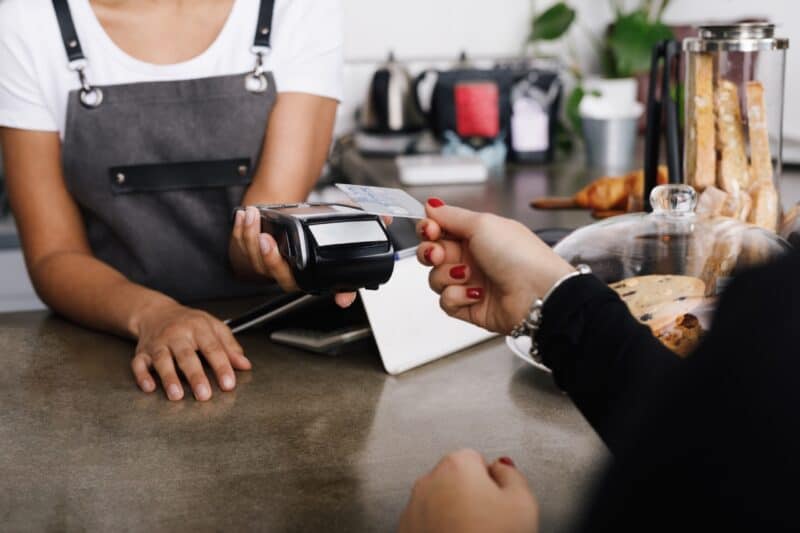
Paying with a card in Dubai is easy and convenient. Credit and debit cards are widely accepted at most stores, restaurants, and services throughout the city.
Small local places will usually accept cards even if it’s a small amount.
Make sure to check your credit card and make sure you’re getting a good rate with low fees. Some cards may even offer reward points, cashback or bonuses when used abroad.
Banking in Dubai and UAE
💸 See what rate you can get today for your home currency 💸
Dubai’s banking system overall is modern and has modern features such as receiving text (SMS) messages when money is transferred into your account, when you are charged or make a payment.
Money transfers are sent quickly with UAE banks offering almost instant transactions between each other.
Transferring to other Gulf Countries is also very fast with many banks able to do next-day transfers, however I’ve frequently experienced getting money in only a few hours.
International transfers typically take a couple of days but can be slower if the country receiving the money needs to check it before releasing the amount.
Payment methods such as wire transfers, money orders, and electronic funds transfers (EFTs) are all accepted in Dubai. Dubai and the UAE are also friendly towards cryptocurrencies.
Banking regulations in Dubai
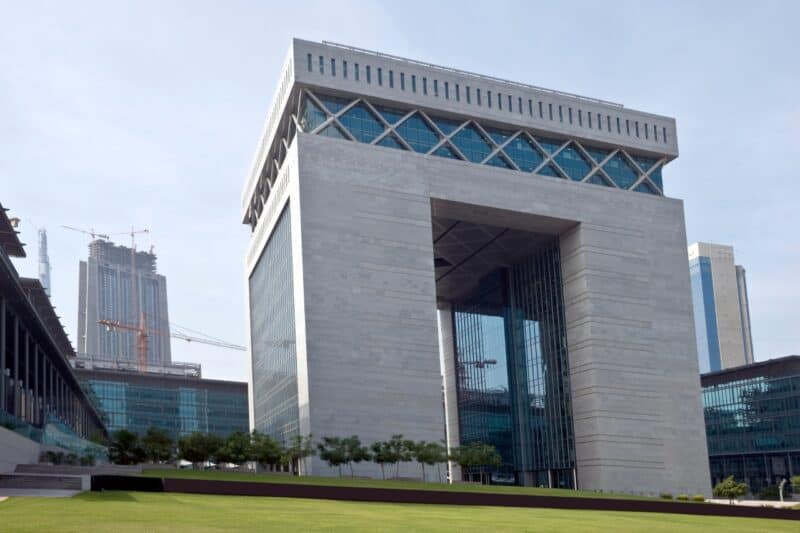
Banking regulations in Dubai are strict and ensure that financial transactions are secure however compared to the UK or Europe, Dubai is less developed.
It’s impossible to expect a country that has existed for just over half a century to have the same level of regulations compared to countries with banking sectors existing for hundreds of years.
So it is something to keep in mind that savings and investments may not have the same level of protection offered by the government as compared to your home country. The UAE has promised to protect people’s money in the event of a collapse but it is not fully in law and more of a public promise.
The majority of the banks in the UAE are partly owned by the government which means there is more responsibility there in the event of financial trouble.
In addition, banks in the Emirate must adhere to various laws and regulations set by the UAE Central Bank, which include capital requirements, lending restrictions, licensing and disclosure requirements.
In addition to these regulations, banks must also comply with anti-money laundering (AML) and know-your-customer (KYC) requirements. This involves verifying the identity of customers before any transactions can be made.
Overall, these regulations make banking in Dubai a safe and reliable experience.
VAT and other taxes in Dubai
VAT (Value Added Tax) is one of the main taxes in Dubai, and is at a rate of 5% on most items. This applies to both residents and tourist.
Certain items such as healthcare services, educational fees and gold for investment are VAT exempt.
In addition to VAT, there are other fees that essentially act like taxes. When using government services, paying fines etc you’ll see an admin or knowledge fee. Also in areas like DIFC, a fee is added to your bill. Outside of DIFC, all fees are included in the menu price.
If you stay at hotel, you’ll also pay a daily tourism fee in Dubai. Other fees include salik which are tolls for using the main road in Dubai and apply if you hire a car or when taking a taxi.
If you travel to Abu Dhabi for a few days, tourist fees are also added here when dining and other activities.
Corporate Taxes in UAE
Corporate taxes were introduced in Dubai from 1st June 2023. So if you’re planning to set up a company in Dubai, you will need to submit financial reports and pay corporations taxes. There is still zero income taxi in Dubai.
As a tourist, you are able to claim VAT back when leaving at the airport or other exit ports from participating outlets and if you’ve spend over 250 AED. These is a fee of 4.80 AED per receipt and must be validated within 90 days.
Final thoughts on currency in Dubai
Sign up for a Wise account and save on fees 💵
As with any travel, it’s best to check currency exchange rates before you travel so you have a good idea of whether things are a good price as you shop. Dubai is pretty easy compared to GBP as you just divide it by 5 as a general rule of thumb.
Also make sure to check your credit or debit card fees before visiting Dubai and see if there are better options. One of the best you’ll find is to use Wise for currency exchange.
Overall, Dubai is a safe place for banking and exchanging money. Dubai is definitely one of the easiest places to spend money in the world, so I hope you have an amazing worry-free time!
Want to learn more about Dubai and the UAE? Read our other helpful articles below
What is the climate of Dubai? Weather and average temperatures
How to easily get a sim card in Dubai as a tourist or new resident
Doha VS Dubai; what is Doha in Qatar like compared with Dubai in the UAE?
What is life in Dubai like? 29 things to know before you visit or move
What plug type in Dubai do they use? Taking your electronic devices to UAE
Getting around Dubai, full guide to the hop on and hop off tour bus in Dubai
Looking to save money while visiting or living in Dubai? Join our FREE facebook group where we help you save money on hotels, activities, dining out, nights out and more!
Read more Plan your Dubai visit guides
Looking to save money while visiting or living in Dubai? Join our FREE facebook group where we help you save money on hotels, activities, dining out, nights out and more!
Read more Plan your visit to Dubai Guides
*This article contains affiliate links, as an Amazon Associate and a member of other affiliate programs, I earn a commission when you click a link and a qualifying purchase is made. (See Disclosure for more details)

